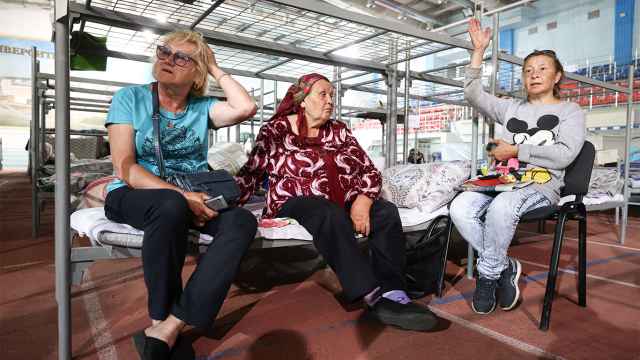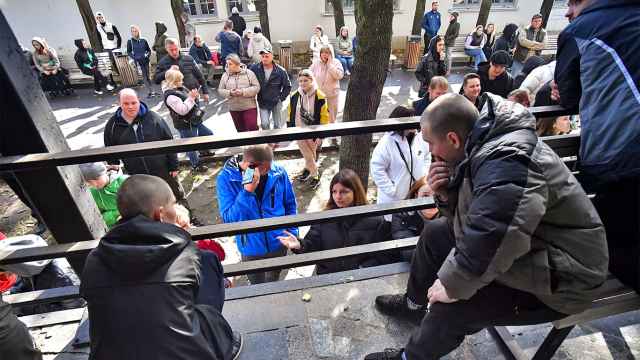The Russian public’s trust in the institution of the presidency went down significantly between 2017 and 2019, as did, to a somewhat lesser extent, trust in the Federal Security Service (FSB, successor to the KGB).
Trust in the military remains strong. Still, these three agencies, in the order of the presidency, the army, and the security agency, remain Russians’ most trusted institutions, new survey data published by the independent polling organization Levada revealed on Monday.
But as Vladimir Putin enters the second year of his fourth and possibly last term as president, how the Russian state will respond to the loss of public support becomes a matter of high salience.
It is important at the outset to disentangle trust in the presidential office from Vladimir Putin’s personal approval rating, though the two are easily conflated. Someone other than Putin occupying the post is such a distant memory (Medvedev’s 2008–2012 stint is not remembered as a real presidency) that the notions of “president” and “Putin” are almost synonymous.
Trust in both the institution and the man skyrocketed after the annexation of Crimea in 2014. Both have now declined to pre-Crimean levels, hit by the unpopular retirement age reform last year, a stagnating economy, and falling incomes.
The triumphalist spirit of 2014 is all but gone. The mood of 2014 and Putin’s unquestioned legitimacy allowed the Russian government to glide over domestic problems such as low incomes, poor health care, growing utilities costs, and deteriorating housing.
Putin’s sky-high approval rating allowed the Kremlin to run regional electoral campaigns in greater Russia by simply associating the Kremlin’s chosen candidate with Putin: voters would support whoever was seen as having Putin’s support.
But the favorable winds have started to shift. In the fall of 2018, a number of regions showed that an association with Putin was not magical, and voted down the Kremlin’s candidates on the ballot.
Since all other candidates were spoilers not meant to be elected, the voters decided to do the only thing they could do in a controlled election — obstruct it. They showed up and voted heavily for anyone who stood a chance of tipping the balance against the Kremlin-preferred candidate.
In early 2019 Russians find themselves in the fifth consecutive year of falling real incomes, and the national mood is finally catching up with reality. The year 2013 was the last time Russians saw their real incomes grow.
“Today the incomes are 11 percent lower than five years ago,” the analyst Kirill Tremasov wrote recently. “We have not seen a comparably long stretch of impoverishment since the 1990s.”
In trying to understand Russia’s relationship with its favorite leader, Kremlin observers often point to the Kremlin’s skill in getting the populace to rally round the flag. They might next point to the gross mind manipulation that the Kremlin is performing daily with the help of Russia’s large array of state-run media.
An example of this manipulation comes up when people are asked about Putin. Russian respondents, when asked the big question, may try to confirm their loyalty to the authorities or express their feelings about their country as seen on national television.
The average Russian’s responses to polling questions are a staple of that same Russian media diet. Most polling data thus come full circle.
And yet this circle is apparently not without some kind of termination point. The political scientist Daniel Treisman has shown that Yeltsin’s and Putin’s ratings did in fact reflect objective economic indicators. If Yeltsin had had Putin’s economy, he would have been much more popular. If Putin had Yeltsin’s economy, he would be much less popular.
The nationalist mobilization effects and the media manipulation do work — in the short term. In the long run, however, they merely delay the impact of public perceptions of the country’s economic performance.
The adjustment does happen, even in Russia; it just takes time. And Putin’s approval rating today is not at its lowest.
“We can say that the current figures are not the lowest ever, but they are definitely the lowest since the annexation of Crimea. In fact, his approval ratings had been rising gradually, until July 2018, when disapproval skyrocketed from 20 to 32 percent, which is a direct effect of the retirement age hike,” Alexei Levinson, Levada’s director of research, said in a recent interview.
That said, the Kremlin is far from losing its game. What has finally happened is that Putin’s anomalously high approval rating has adjusted to the facts of life. Putin is no longer immune from responsibility for the economic malaise besetting the country he leads.
He is just a politician who could be punished in the court of public opinion, the Russian public now seems to realize. But the path from this realization to a political solution is long and uncertain.
A sky-high rating is always good to have but is not indispensable for Russia’s political system to continue operating along business as usual lines. The kinds of institutions in which Russians place their trust, or do not, suggests why this is so.
The Kremlin political managers have been working for years to downgrade some institutions and promote others. Political parties, NGOs, media, the courts — in other words, all those institutions that people resort to when they feel they have been wronged by ruling politicians — are weak.
About 52 percent of Europeans, on average, trust their legal and judicial systems (see Special Eurobarometer 461), while in Russia only 28 percent trust the judicial system. People in Russia would not normally rest their hopes in a judge or lawyer, or in an NGO activist or an opposition party leader.
Some do, but very few. What the Kremlin has been doing consistently is to remove all alternatives to itself rather than promoting a positive ideal. The three agencies of the presidency, the army, and the FSB remain Russians’ most trusted institutions, even as support for the presidency and the FSB declines.
And these institutions do not live in misery. Russia the state, as opposed to Russia the people, is not short of money because oil and gas revenues have been strong for several years.
This year, Russia’s budget surplus is projected to be almost 2 trillion rubles (about U.S. $30 billion), or 1.8 percent of GDP. Russia’s foreign exchange reserves stand at $478 billion, the fifth largest in the world.
But the nice cushion of overwhelming public support that the Kremlin and the Russian government have enjoyed for years is now gone. It remains to be seen how the Russian political system will function when it can no longer freeload on gratuitous support.
This article was originally published at the Kennan Institute.
A Message from The Moscow Times:
Dear readers,
We are facing unprecedented challenges. Russia's Prosecutor General's Office has designated The Moscow Times as an "undesirable" organization, criminalizing our work and putting our staff at risk of prosecution. This follows our earlier unjust labeling as a "foreign agent."
These actions are direct attempts to silence independent journalism in Russia. The authorities claim our work "discredits the decisions of the Russian leadership." We see things differently: we strive to provide accurate, unbiased reporting on Russia.
We, the journalists of The Moscow Times, refuse to be silenced. But to continue our work, we need your help.
Your support, no matter how small, makes a world of difference. If you can, please support us monthly starting from just $2. It's quick to set up, and every contribution makes a significant impact.
By supporting The Moscow Times, you're defending open, independent journalism in the face of repression. Thank you for standing with us.
Remind me later.








